4 Vedas names (with basic information) (meaning)
Namaste friends, how are you doing today? Welcome to #BhagavanBhakthi website / blog.
Bhagavan Lord Sri Krishna (Vishnu) (Rama) blessings to you and your family!
In this website / blog, you will always learn about #Hinduism #Sanskrit language.
Also subscribe to my YouTube channel from this link #BhagavanBhakthi to view videos about #Hinduism #Sanskrit language.
Just before going to “4 Vedas names (with basic information) (meaning)“, let us know a brief, basic and very important information.
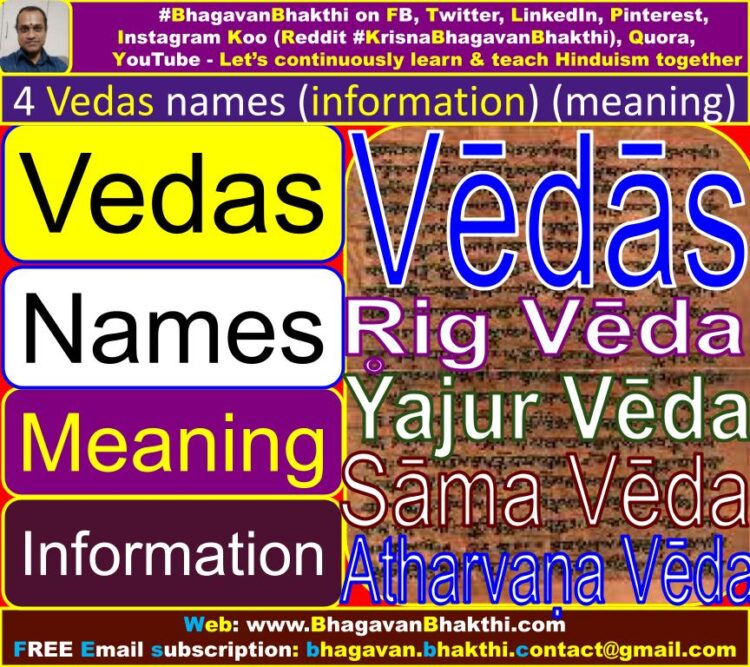
Hindu texts (scriptures) (Granthas) (Holy books) (treatise) are the manuscripts which are vast ancient composition literature.
These are authenticatively associated to the diverse traditions within Sanatana Dharma (Hinduism).
These authentic texts (scriptures) (Granthas) (Holy books) (treatise) of Sanatana Dharma (Hinduism) were written by Lord Sri Vishnu himself.
And few of them were composed by other Rishis and Devatas (Demigods) as per instructions of Lord Sri Vishnu.
The Hindu texts (scriptures) (Granthas) (Holy books) (treatise) are divided into Shrutis (that can be heard) and Smritis (that can be recalled or remembered).
In this post (article), you can get the knowledge about the 4 Vedas names with basic information and meaning.
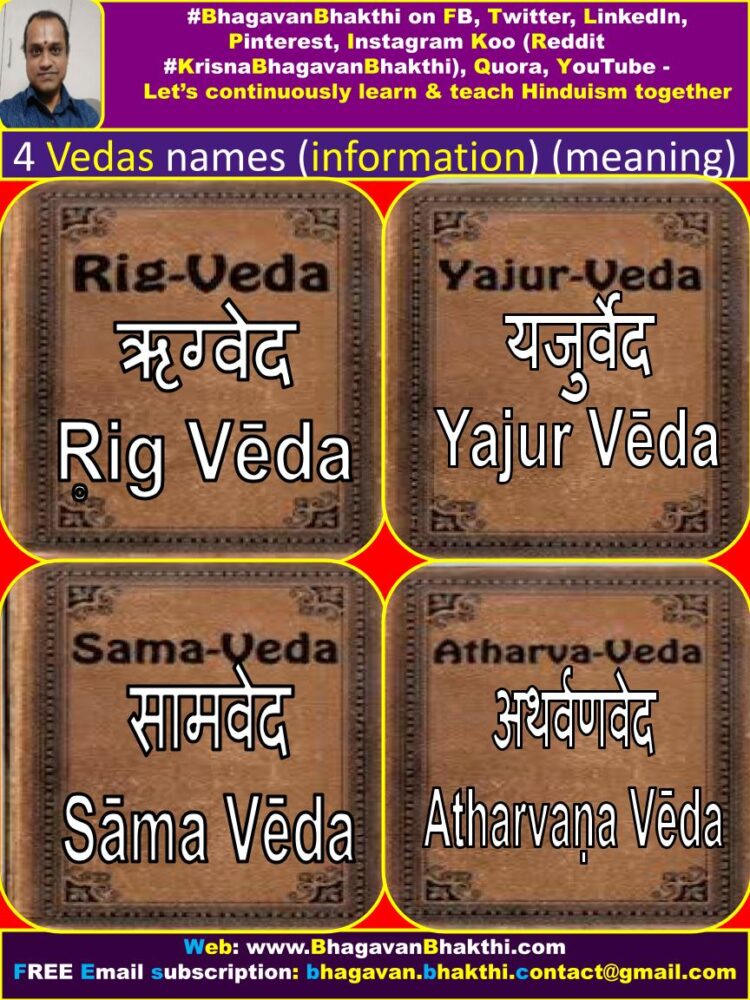
Vedas : In Sanskrit Veda (वेद / vēda) means sacred knowledge of Sanatana Dharma. Vaida means knower of this knowledge of Sanatana Dharma.
Vaidya also means the physician or doctor, who has gained knowledge about medicines reading and understanding these great and divine Vedas.
The 4 Vedas names is as given here : Rig Veda, Yajur Veda, Sama Veda and Atharvana (Atharva) Veda.
4 Vedas basic information (meaning) is as given below:
1. Rig Veda : In Sanskrit Rig Veda is written as ऋग्वेद (r̥gvēda). Rig Veda is the oldest ever known Hindu text (scripture) (Grantha) (Holy book) (treatise).
The Rig Veda consists of the Brahmanas, Samhita, Brahmanas, Upanishads and Aranyakas.
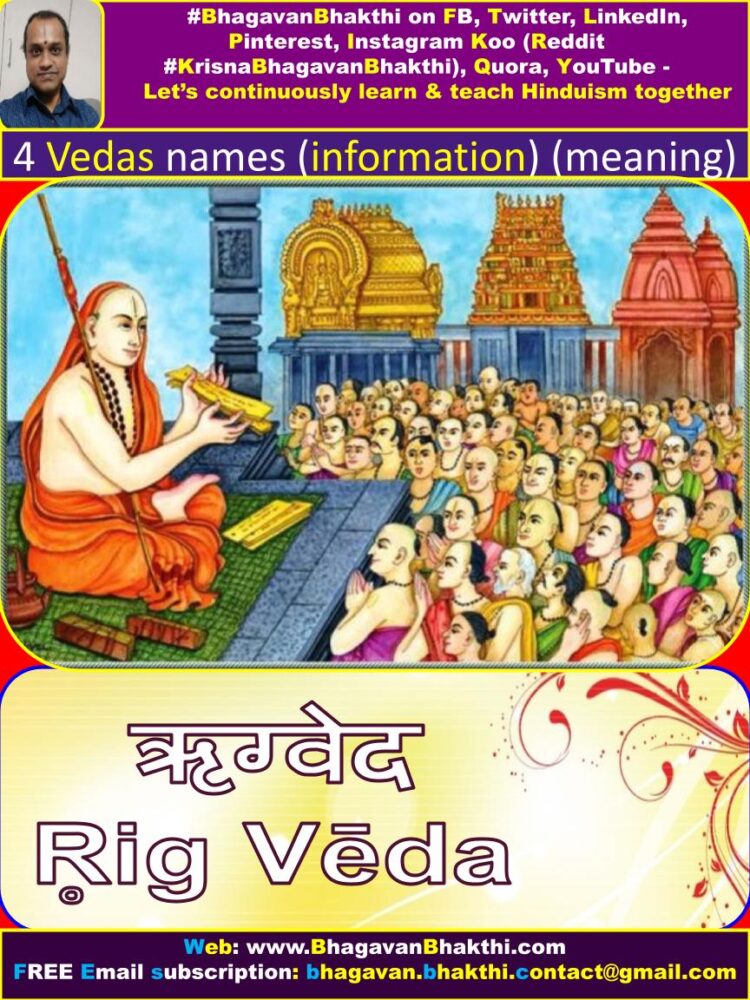
The Rig Veda Samhita is the core text and is the collection of 10 maṇḍalas (books) with 1,028 sūktas (hymns) in about 10,600 verses.
2. Yajur Veda : In Sanskrit Yajur Veda is written as यजुर्वेद (yajurvēda).
In Yajur Veda, Yajus means ‘worship‘ and Veda means ‘knowledge‘, that is, Yajur Veda basically contains the mantras for worship rituals.
The Yajur Veda is widely divinded into two types, that is, ‘Krishna Yajur Veda‘ (dark Yajur Veda) and ‘Shukla Yajur Veda‘ (bright Yajur Veda).
The term ‘Krishna Yajur Veda’ or ‘dark’ means “the unorganized, uncertain, incongruously collection” of hymns in Yajurveda.
Whereas the ‘Shukla Yajur Veda’ or ‘bright’ means in “well organized, congruous collection“.
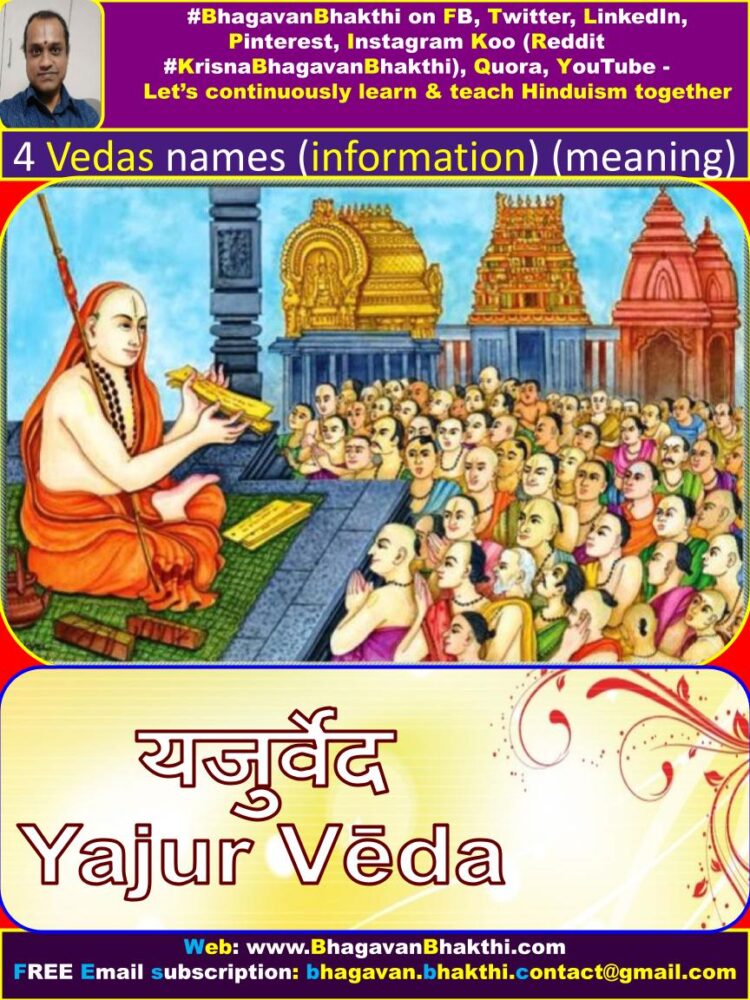
3. Sama Veda : In Sanskrit Sama Veda is written as सामवेद (sāmavēda).
In Sama Veda, sāman means song and Veda means knowledge, that is, Sama Veda relates to the melodies and chants.
The Sama Veda contains the Chants, that is, it is known as the “storehouse of knowledge of chants“.
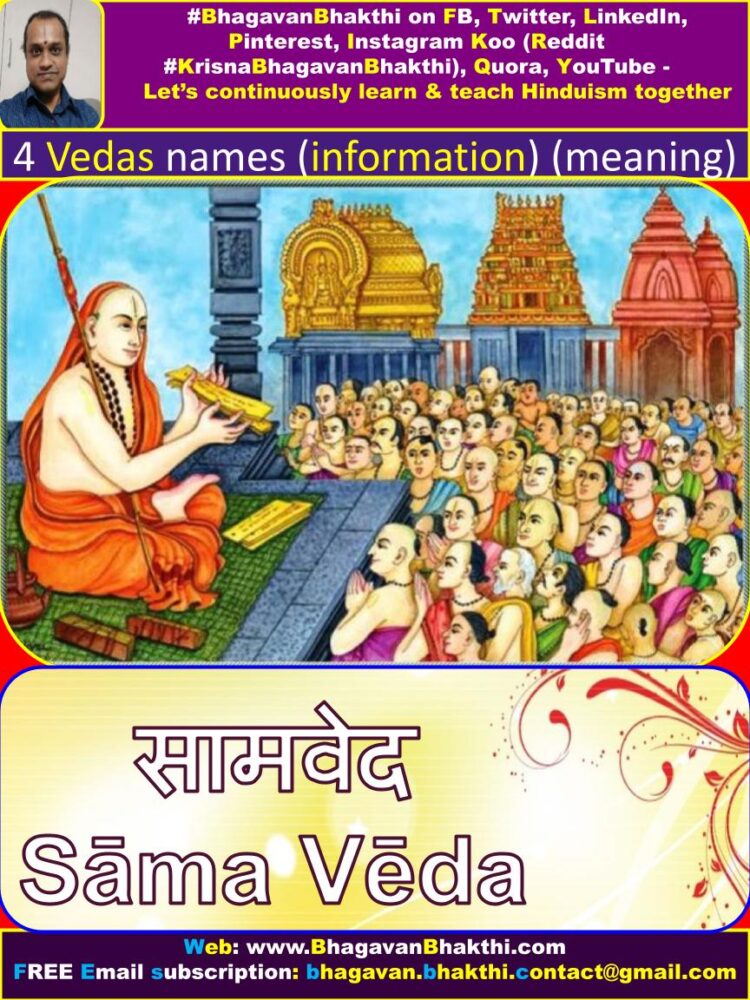
4. Atharvana (Atharva) Veda : In Sanskrit Atharvana (Atharva) Veda is written as अथर्वणवेद (अथर्ववेद) (atharvaṇavēda) (atharvavēda).
In Atharvana (Atharva) Veda, atharvāṇas means “procedures of everyday life” and Veda means ‘knowledge‘.
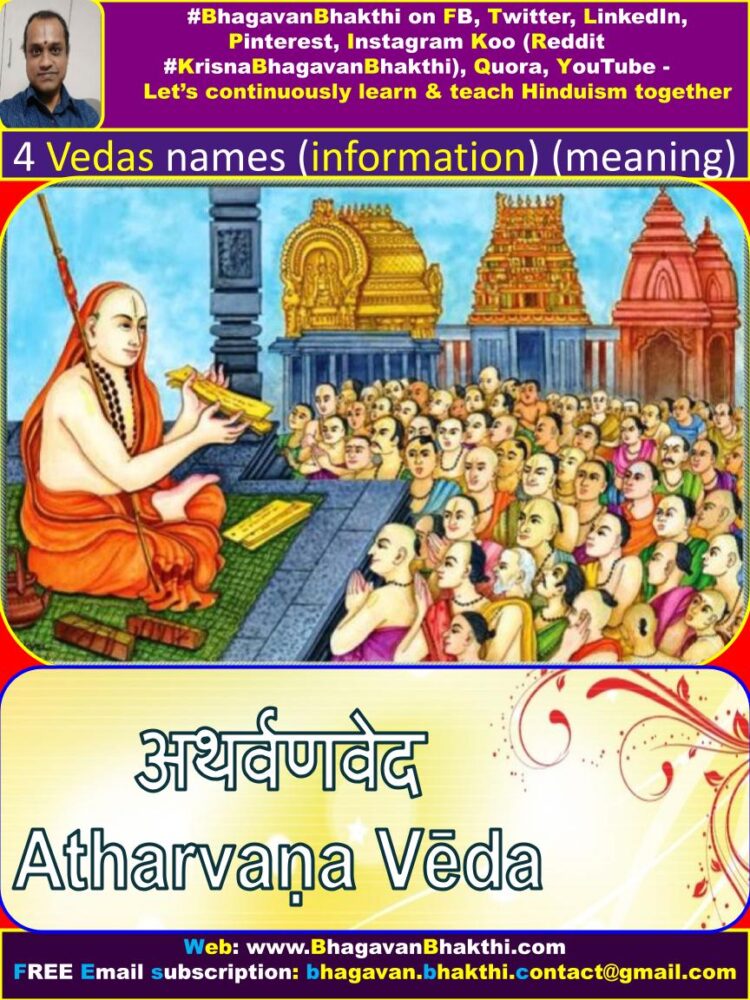
More information will be added to this on regular basis. Please visit after some time to get the updated information.
To watch videos on #Hinduism #Sanskrit language, SUBSCRIBE to my YouTube channel from this below link:
#BhagavanBhakthi YouTube channel
To know more about “Vedas information, facts, significance, means, etc.“, please click the below link:
Vedas information, facts, significance, importance, meaning, etc.
Continue reading about “List of Hindu texts names (With basic information) (scriptures) (Granthas) (Holy Books) (treatise)” from these below links:
List of Hindu texts names – Part 1 of 4 (With basic information)
Dear friends, if you need any clarifications about this post, kindly let me know, I will definitely try to answer all of them.
Also your one LIKE, one COMMENT, One Share, one SUBSCRIPTION is highly important.
This will help to know the quality of this content and also it will be helpful to know if any improvements is required for the content.
If you feel this content is useful to you and has helped you to improve your knowledge, kindly share this with your well-wishers. Because “SHARING MEANS CARING”.
To receive FREE EMAIL SUBSCRIPTION about #BhagavanBhakthi, you can send an email to [email protected] from your email ID.
NAMASTE!
Sri Gurubhyo namaha
Om Sri Krishnaaya namaha
Sri Krishnaarpanamastu
Share in Social Media
Regards for helping out, great information.